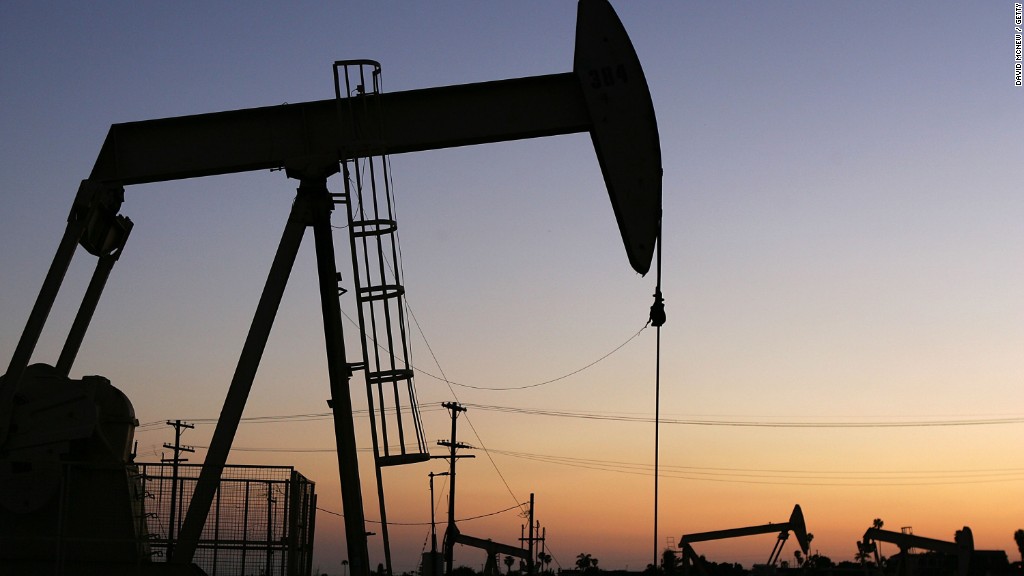
Saudi Arabia is running out of money.
While the world's attention is focused on Saudi Arabia's latest flare up with Iran, many Saudis are concerned about the "economic bomb" at home. The government is slashing a plethora of perks for its citizens.
The cash crunch is so dire that the Saudi government just hiked the price of gasoline by 50%. Saudis lined up at gas stations Monday to fill up before the higher prices kicked in.
"They have announced cutbacks in subsidies that will hurt every single Saudi in their pocketbook," says Robert Jordan, a former U.S. ambassador to Saudi Arabia and author of "Desert Diplomat: Inside Saudi Arabia Following 9/11."
Gas used to cost a mere 16 cents a liter in Saudi Arabia, one of the cheapest prices in the world. Many Saudis drive large SUVs and "have no concept of saving gas," says Jordan.
Gas price hike is just the beginning
The gas hike is just the beginning. Water and electricity prices are also going up, and the government is scaling back spending on roads, buildings and other infrastructure.
Those cuts might sound normal for any government that is running low on cash. But it's especially problematic in Saudi Arabia because the vast majority of Saudis work in the public sector.
About 75% of the Saudi government's budget comes from oil. The price of oil has crashed from over $100 a barrel in 2014 to around $36 currently. Most experts don't expect a rebound anytime soon.
The Saudi government used its vast oil wealth to provide generous benefits to its citizens. When the Arab Spring rocked the Middle East in 2011, the Saudi king spent even more in an effort to subdue any discontent in the country.
The perks Saudis receive:
Here are some of the perks Saudis receive:
-Heavily subsidized gas (It used to be 16 cents a liter. Now it's gone up to 24 cents.)
-Free health care
-Free schooling
-Subsidized water and electricity
-No income tax
-Public pensions
-Nearly 90% of Saudis are employed by the government
-Often higher pay for government jobs than private sector ones
-Unemployment benefits (started in 2011 in reaction to the Arab Spring)
-A "development fund" that provides interest-free loans to help families buy homes and start businesses.
Saudi Arabia may have to start taxing its people
Now Saudi Arabia can't pay for all those benefits. It ran a deficit of nearly $100 billion last year and expects something similar this year, if not worse.
The International Monetary Fund recently predicted that Saudi Arabia could run out of cash in five years or less if oil stays below $50 a barrel.
"The Saudis have used their economic power to buy off their population," says Jordan, who is currently serving as diplomat in residence at Southern Methodist University.
He predicts Saudi Arabia may even have to start collecting an income tax or sales tax.
"Part of the leverage the regime has had on their people is that they don't impose taxes and therefore people don't expect representation," Jordan says. "But once they pay taxes, you're likely to see an increase in political unrest."
Unemployment is already high in the country. Official statistics put it at about 12%, but experts say it's likely much higher since many Saudis don't even look for work.
Saudis not cutting back on defense
Members of the royal family have enjoyed lavish expense accounts for years. Those were detailed in U.S. embassy cables leaked on WikiLeaks, including a sex, drugs, rock 'n' roll lifestyle of many young royals. It's unclear how much those will be scaled back since many of the royal perks are off budget.
Jordan says the execution of 47 Saudi prisoners over the weekend is a warning sign that the Saudis will not tolerate dissent.
And there's one area the Saudis are not cutting: defense spending. The country currently spends 11% of its GDP on defense, the highest in the world. It intends to spend even more this year.
CNN's John Defterios and Ivana Kottasova contributed to this article.


